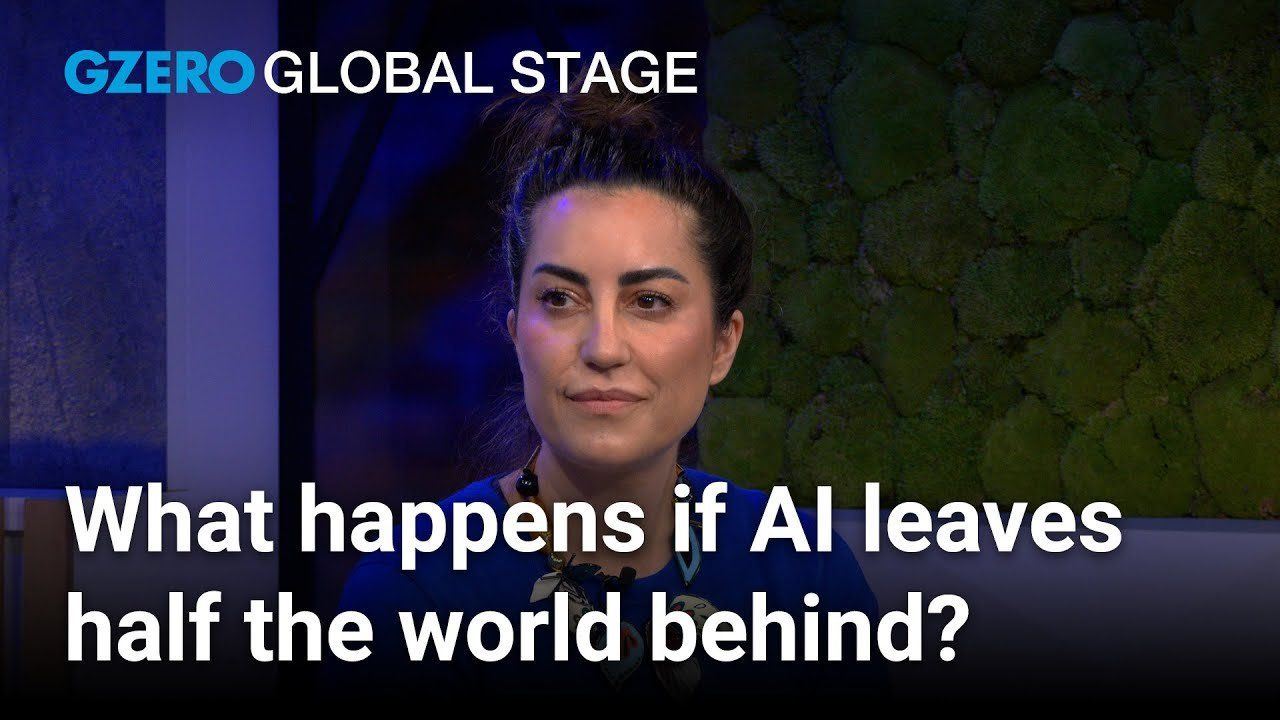UN STI Forum
Customizing AI strategies for every region, culture, and language is critical

Customizing AI strategies for every region, culture, and language is critical | Global Stage

As artificial intelligence races ahead, there’s growing concern that it could deepen the digital divide—unless global inclusion becomes a priority. Lucia Velasco, AI Policy Lead at the United Nations Office for Digital and Emerging Technologies, warns that without infrastructure, local context, and inclusive design, AI risks benefiting only the most connected parts of the world.
In this Global Stage conversation from the 2025 STI Forum at the United Nations, Velasco argues that to be truly transformative, AI must be developed with the realities of underserved regions in mind. “It’s not the same solution thought of in the US as one in any country in Africa,” she explains. Effective governance, she says, must bring together governments, companies, academia, and civil society—not just a handful of powerful tech players.
Velasco emphasizes that AI adoption isn’t just about deploying tools—it’s about building the foundations that allow every country to create its own solutions. That includes access to electricity, connectivity, and training, but also ensuring AI models speak a diversity of languages and reflect a diversity of needs.
This conversation is presented by GZERO in partnership with Microsoft, from the 2025 STI Forum at the United Nations in New York. The Global Stage series convenes global leaders for critical conversations on the geopolitical and technological trends shaping our world.
See more at https://www.gzeromedia.com/global-stage/un-sti-forum/ai-trends-in-2025-that-drive-progress-on-global-goals
People in support of former South Korean President Yoon Suk Yeol rally near Seoul Central District Court in Seoul on Feb. 19, 2026. The court sentenced him to life imprisonment the same day for leading an insurrection with his short-lived declaration of martial law in December 2024.
65: The age of former South Korean President Yoon Suk Yeol, who was sentenced to life in prison on Thursday after being found guilty of plotting an insurrection when he declared martial law in 2024.
In an era when geopolitics can feel overwhelming and remote, sometimes the best messengers are made of felt and foam.
The Hungarian election is off to the races, and nationalist Prime Minister Viktor Orbán is facing his most serious challenger in 16 years.
Does skepticism rule the day in politics? Public opinion data collected as part of the Munich Security Conference’s annual report found that large shares of respondents in G7 and several BRICS countries believed their governments’ policies would leave future generations worse off.